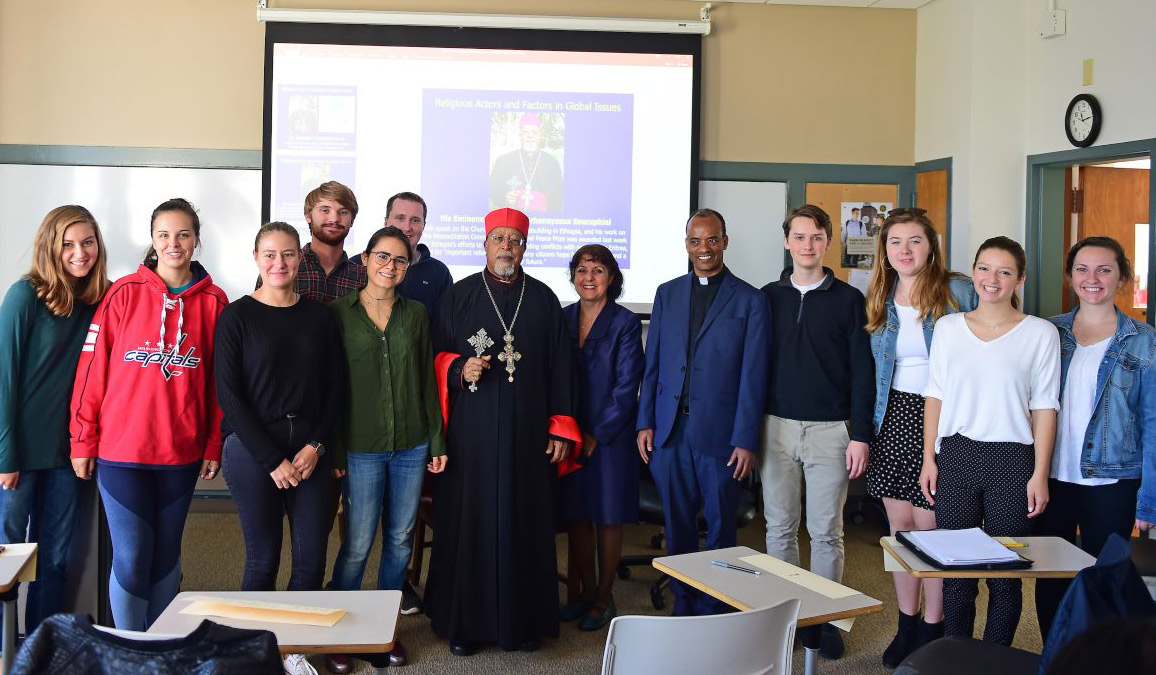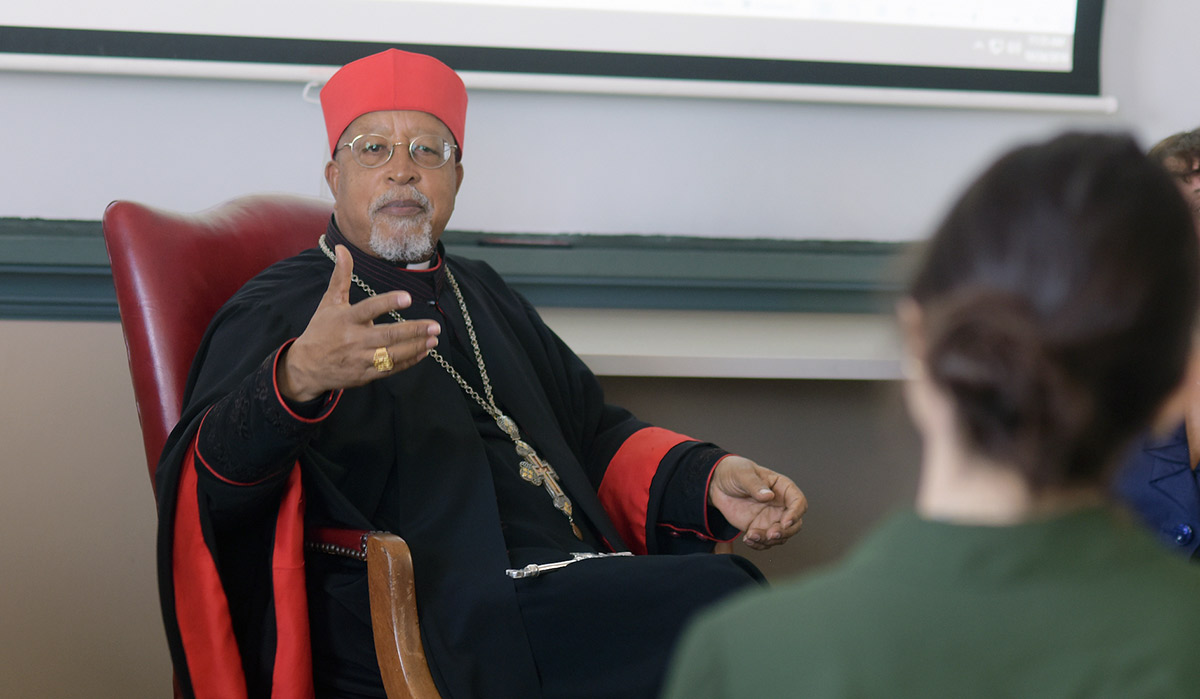

Catholic University politics students learned how peace can be built even after years of conflict, during a talk by Cardinal Berhaneyesus Souraphiel, the metropolitan archbishop of Addis Ababa, Ethiopia. A global leader in peacebuilding, Cardinal Souraphiel serves as president of the Catholic Bishops’ Conference of Ethiopia and a member of the Pontifical Council for Migrants.
Maryann Cusimano Love, associate professor of international relations, invited Cardinal Souraphiel to speak to students in her Global Issues course. The visit was timely considering that Ethiopian Prime Minister Abiy Ahmed was recently awarded the Nobel Peace Prize for Ethiopia’s work to advance peace after a long-standing conflict with Eritrea. Cardinal Souraphiel has been actively involved in those peacebuilding efforts as the head of Ethiopian Peace and Reconciliation Commission.
During his talk, the cardinal spoke about economic conditions in Ethiopia. Though the country is home to one of the fastest growing economies in the world, many people still live in extreme poverty, lacking access to electricity and running water. Climate change is also a challenge, making it more difficult for subsistence farmers to feed the country’s growing populations.
Another big challenge for Ethiopia, the cardinal said, is its young population. Forty percent of the population are under the age of 14 and 60% are under the age of 25. The cardinal discussed his efforts to improve education for the next generation and to establish a Catholic University of Ethiopia.
“We have started the Ethiopian Catholic University for quality education and for dialogue and peaceful coexistence,” he said. “With dialogue and peaceful coexistence you can have so much. It shows that you don’t have to kill each other because of different ideas.”

Love said the cardinal’s visit helped provide students with an example of how religious actors and factors can positively impact world politics to “advance peace and integral human development. “Our students were impressed by the cardinal’s optimism, faith, and can-do attitude, despite the pressing challenges of poverty and conflict in his country,” she said.
Love was particularly inspired when Cardinal Souraphiel spoke about his time as a political prisoner during the Marxist dictatorship in the 1970s. He was jailed in solitary confinement for seven months because of his faith.
“When you are locked in a room and the only thing you see is up on the wall a little window, where sometimes the birds pass by, you get jealous,” he said. “You also become close to God; so close to your maker because you pray your prayers. I prayed very hard.”
Years later, when the political tides had shifted, the cardinal said he was able to forgive his once-captor. In addition to visiting the man in jail, he also advocated for his release.
“To forgive is one of the greatest graces of the human person,” the cardinal said. “If you don’t forgive it is you who suffers.”
“People often say that reconciliation is naive or impossible, but it is very practical, the necessary social capacity to move forward,” Love said. “Cardinal Souraphiel exemplifies resilience, showing us how to move forward even after grave suffering.”
— Katie Bahr, assistant director of communications and media relations, can be reached at bahr@cua.edu.